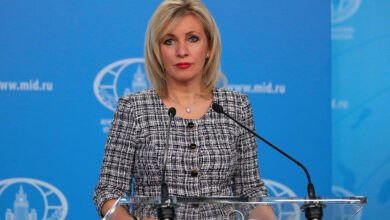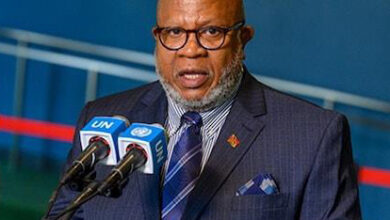PM Modi’s plain speak on Balochistan, POK and Gilgit-Baltistan Rattles Pakistan
New Delhi. Speaking from the ramparts of the Red Fort in Delhi on India’s Independence Day, Prime Minister Narendra Modi criticised Pakistan for supporting cross-border terrorism and obliquely criticised human rights violations by the Pakistan army in Balochistan, Pakistan Occupied Kashmir (POK) and Gilgit-Baltistan.
This is the first time that an Indian Prime Minister has made a reference to the atrocities the Pakistan army commits on “its own” people.” He said he wanted to “thank people of Balochistan, Gilgit and Pakistan Occupied Kashmir for expressing gratitude and sadbhavna (goodwill) towards me and through me to 125 crore Indians.” The Indian PM’s indirect support for the heroic struggle of the Baloch people immediately triggered public outbursts against the Pakistan army’s repression in the troubled areas.
In terms of diplomacy, it also turned out to be a fitting reply to Pakistan’s proxy war against India in Jammu and Kashmir.
Earlier, signalling that India-Pakistan relations continue to remain bogged down in a quagmire, Pakistan PM Nawaz Sharif had announced after a cabinet meeting that Pakistan will observe July 19 as a “black day” to protest India’s “atrocities” in Kashmir. He said: “Pakistan would continue to extend moral, political and diplomatic support for Kashmiris in their just struggle” and that he was waiting for the day when Kashmir would join Pakistan.
Modi has gone out of the way to build relations with Pakistan but it has only been strengthening its terror campaigns against India. Nonetheless, trouble for Pakistan is mounting on various fronts.
Washington has asked Islamabad to be accountable for its terror campaigns, while Afghan President Ashraf Ghani has observed: “Ties with Pakistan are a bigger challenge than combating al-Qaida and Taliban.” Bangladesh Information Minister Hasanul Haq Inu has also accused Islamabad of harbouring and supporting terrorists in his country.
Pakistan should Look Within
Mian Nawaz Sharif forgets that while the Kashmiris who are part of India are ruled by a duly elected representative government, those who reside in Pakistan Occupied Kashmir (POK) are ruled from Islamabad, with the concurrence of GHQ (General Headquarters of the Pakistan army). Then, the people of Gilgit-Baltistan have no rights and that the Baloch people’s quest for freedom has been suppressed by the military jackboot ever since their independence from the British.
Modi’s support has been welcomed by the Baloch people and the Baloch Diaspora. Suddenly, the long-festering Baloch uprising has taken centre stage in world capitals with demonstrations being held in London, Berlin and other European cities.
Thanking the Indian PM for his words of encouragement, Khalil Baloch, chairman of the Baloch National Movement, said in a statement in Washington, “The Baloch nation hopes that the United States and Europe will join Prime Minister Modi and hold Pakistan accountable for the crimes against humanity and the war crimes it has committed against the Baloch nation in 68 years of its occupation of Balochistan and during the five wars that the Baloch nation has fought with Pakistan to win its national freedom.”
According to Nawab Brahumdagh Bugti, head of the Baloch Republican Party, “Balochistan is burning since the forceful occupation of the state in 1948. Five major military operations had been launched by the armed forces of Pakistan and the latest of them still continues full-fledged. During this period, Balochistan has suffered from gross human rights violations by the Pakistani forces which have been getting worse and accelerated with the passage of every single day.”
Nawab Bugti, whose family was dethroned by the Pastani army, says that more than 140,000 Baloch have been killed and at least 20,000 Baloch are missing since 2006.
Counter-Proxy War Strategy for India
Despite several internal security challenges, the Pakistan army and its international sabotage institution ISI, which manipulates terrorists, have been engaged in a low-intensity limited war against India for almost three decades. It believes in tilting the balance of power through balance of terror, particularly by infiltrating terrorists and its spies into India. That keeps its proxy war against India well oiled.
The Pakistani army, known as the deep state within state, is also sponsoring terrorist attacks against Indian economic development projects in Afghanistan.
In the past, it has terror-attacked Mumbai on 26/11/2008, and in January this year, the Indian Air Force (IAF) base in Pathankot.
Of course, Pakistan does everything and denies everything, hard evidence notwithstanding.
India’s carefully calibrated strategy to fight Pakistan’s proxies within its own borders and keep the level of conflict low has not yielded the desired result. For the Pakistan army, terrorism is a low-cost, high-payoff option to keep several divisions of the Indian army and a large number of central armed police forces (CAPFs) embroiled in conflict. But then, India’s patience is bound to wear out sometime, and New Delhi may be forced to adopt hit-to-hurt options.
New Delhi however is generally soft, and its suggestions in the United Nations to force Islamabad to stop terror attacks have had no impact besides building up diplomatic criticism against Pakistan.
But Prime Minister Modi’s reminder to Pakistan to look within itself for the brutal suppression of people in areas occupied by it, Balochistan and Kashmir included, has helped in drawing attention to the ugly side of Pakistani army’s internal security operations.
One hopes that the international community takes note of the plight of the people in Balochistan, Gilgit-Baltistan, Pak-occupied Kashmir, and even in Pakhtoonkhwa.
The author is a leading strategic affairs expert.





